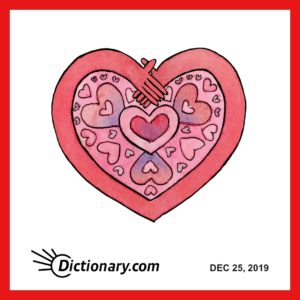Word of the Day
shilly-shally
verb (used without object)
to show indecision or hesitation; be irresolute; vacillate.
More about shilly-shally
We have no need to shilly-shally in giving the origin of this amusing term. It develops from the expression to stand shill I, shall I, a playful variation of the repeated question, shall I? shall I?—which a wishy-washy person would struggle to answer. Shilly-shally is modeled after another so-called reduplication (and near synonym), dilly-dally “to loiter or vacillate.” English is fond of such reduplications, or words formed by repeating a word or syllable. Many reduplications are exact, such as boo-boo. Others rhyme, like razzle-dazzle. Shilly-shally follows a pattern known as ablaut reduplication, in which vowels predictably alternate: chitchat, mishmash, and zigzag are other common examples. Entering English at the end of the 1600s, shilly-shally can also be a noun meaning “irresolution; hesitation; vacillation,” an adjective, “irresolute; undecided; vacillating,” and an adverb, “irresolutely.”
how is shilly-shally used?
Experience had taught him that where evil is concerned, it was better to be frank than to shilly-shally.
I made my choice and stood by it. But you shilly-shally between both sides.
ephemeral
adjective
lasting a very short time; short-lived; transitory: the ephemeral joys of childhood.
More about ephemeral
Something ephemeral lasts only a very short time. It derives from Greek ephḗmeros “short-lived, lasting but a day.” Ephḗmeros is ultimately based on the preposition and adverb epí “upon, up to, during,” among many other senses, and the noun hēméra “day.” In English, ephemeral originally described fevers that spanned just a day, and evolved to refer to organisms (and other things) not long for this world, including flowers or insects—like the mayfly, which is classified as an ephemerid and shuffles off this mortal coil within two days. Ephḗmeros is also the source of the English plural noun ephemera (singular ephemeron) “items designed to be useful or important for only a short time, especially pamphlets, notices, tickets, etc.” Ephemeral has not proved as much in English, entering in the late 1500s.
how is ephemeral used?
In this country, man’s work seems ephemeral, his influence transitory. Summer scorches the heath. Winter brings a pale damp light.
It’s only with the rise of the Internet that a truly casual, willfully ephemeral prose has ascended—and become central to daily life.
More about big-hearted
Big-hearted “generous; kind” certainly wears its heart on its sleeve, etymologically speaking. It’s a straightforward compound of big “magnanimous; generous; kindly” and hearted “having a specified kind of heart.” While big-hearted is found in English in the 1700s in the sense of “courageous,” the word heart, as regarded as the center of a person’s emotion and disposition, reaches well back into Old English. Hearted is used in combination with other adjectives to describe various temperaments: cold-hearted, fainthearted, hardhearted, and lighthearted are some other common examples.

how is big-hearted used?
The varied gifts were ranged about the foot of the bed, the golf stockings bulging with sweets were hung at its head, and the big-hearted donors retired ….
For his part, the Badger left him in no doubt that a small effort now, and a big-hearted gesture, would make all the difference to the life of Toad, of the River Bank and of them all.